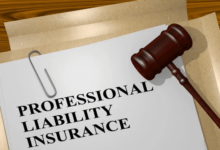What Not to Say to a Guardian Ad Litem

When it comes to navigating the complex and emotionally charged world of child custody cases, one key player who can make or break a family’s future is the Guardian ad Litem (GAL).
A GAL is appointed by the court to represent the best interests of the child involved, acting as their advocate and investigator.
However, there are certain things that should never be said to a GAL. Whether it’s personal attacks, spreading inaccurate information, or criticizing their decisions, these missteps can have serious consequences.
In this discussion, we will explore the importance of maintaining a respectful and constructive dialogue with a GAL and the potential repercussions of not doing so.
Personal Attacks or Insults
In the context of interacting with a guardian ad litem, it is crucial to maintain a professional demeanor and refrain from engaging in personal attacks or insults. This is important for several reasons.
Firstly, personal attacks or insults can undermine the credibility of your case and weaken your argument.
Secondly, it can damage the relationship and trust between you and the guardian ad litem, making it harder to work together effectively.
Building trust and showing empathy towards the guardian ad litem’s role is essential for a successful outcome.
Inaccurate or Misleading Information
Continuing the discussion on maintaining professionalism and credibility when interacting with a guardian ad litem, it is important to address the issue of providing accurate and reliable information. Misinterpretation of facts and false assumptions can significantly impact the outcome of a case.
It is crucial to ensure that all information shared with the guardian ad litem is truthful and supported by evidence. Failing to do so can undermine your credibility and jeopardize the best interests of the child involved.
Criticizing the Gal’s Decisions or Recommendations
Critiquing the decisions or recommendations made by the guardian ad litem should be approached with caution, as it is essential to maintain a respectful and constructive dialogue throughout the process.
Understanding the GAL’s role is crucial in order to effectively communicate concerns. Rather than attacking the GAL personally, it is more productive to address specific concerns and provide supporting evidence.
This approach fosters a more collaborative environment and increases the likelihood of reaching a favorable outcome for all parties involved.
Conclusion
In conclusion, it is crucial to approach interactions with a guardian ad litem (GAL) with respect and professionalism.
Avoid personal attacks, provide accurate information, and refrain from criticizing their decisions or recommendations.
By maintaining an objective and informative approach, we can foster a productive dialogue with GALs, ultimately ensuring the best interests of the children involved in legal proceedings are protected.





